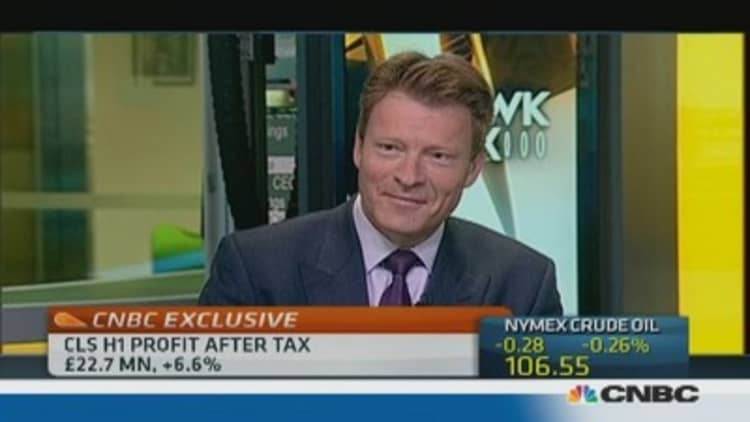Singaporean demand for London properties is heating up as a host of factors drive locals into the U.K. capital's thriving market.
"By far the most popular foreign city for Singaporean investors is London," said Richard Levene, director of international properties South East Asia for Singapore-based real estate firm Colliers International.
"Central London is appealing as it is outside of the euro zone, [the] is weak, interest rates are low, and there is relative ease of entry and exit… In addition an imbalance of demand and supply has led to increasing capital values," he added.
(Read more: Is it time to scoop up Vietnam properties?)
Last week the Centre for Economics and Business Research - a U.K.-based think tank - forecast London property prices would leap a staggering 43.5 percent by 2018, pushing the average London home price up to £556,000 (US$893,658). By contrast CEBR found that house prices in the East of England and Scotland would rise by 27 percent over the next five years.
The boom has been attributed to the government's Help to Buy scheme which is set to launch on Tuesday, and offers taxpayer-subsidized mortgages.
(Read More: UK acts to reducehousing bubble fears)

According to Levene, London's property market is now seen as a safe haven among Singaporean buyers looking to diversify their property portfolio and safeguard their investments. Further compounding this trend, unattractive conditions in Singapore's domestic market are pushing investors elsewhere.
"The domestic market [in Singapore] is expensive and opportunities are limited. This has led to buyers looking elsewhere for real estate investments," he said
(Read More: Taper terror may leave Singapore property unscathed)
Singapore is home to one of the most expensive real estate markets in the world. Prices have soared over 60 percent since mid-2009 spurred by a low interest rate environment.
A two-bedroom apartment located in Singapore's central business district averaged between SG$1,080,000 (US$864,207) and SG$4,200,000 (US$3,360,806) according to property website propertyguru.com.sg.
Fears over a bubble forming in the market have led policy makers to unleash eight rounds of restrictive measures in recent times, and the moves now appear to be taking affect, with some analysts now forecasting a slump in prices. Barclays analysts recently warned that Singaporean property prices could be headed for an up to 20 percent correction by 2015.
"For those who might not have previously considered looking at overseas real estate as an investment, this now becoming a realistic option as taxes on local property investment purchases increase," added Levene.
Tim Gibson, manager of the Henderson's $1.2 billion Asia Pacific Properties fund, told CNBC that the rise in Singaporeans' appetite for London properties has been an ongoing trend for a while.
(Read More: UK Property Price Rises Stoke Fears of New Bubble)
According to Gibson, a number of factors have contributed to the trend, including worries over the effect that the imminent withdrawal of the Federal Reserve's quantitative easing program could have on Asian property markets, along with the clampdowns in the Singapore property market and the healthy local appetite for diversification.
"London is already a desirable investment location for Singaporeans because of factors such as the language overlap, good schools, and culture," said Gibson. "There are no restrictions on the London market, compared to Singapore, and you have a very liquid market allowing investors to get capital in as well as out."
"Singaporean and Malaysian investors have been flocking to London for a long time, but recently this trend has accelerated, helped the fact that there have been a lot of launches in London recently," said Gibson, adding that Asian investors are typically attracted to brand new assets, like new-build developments, rather than older properties.
— By CNBC's Katie Holliday: Follow her on Twitter @hollidaykatie

